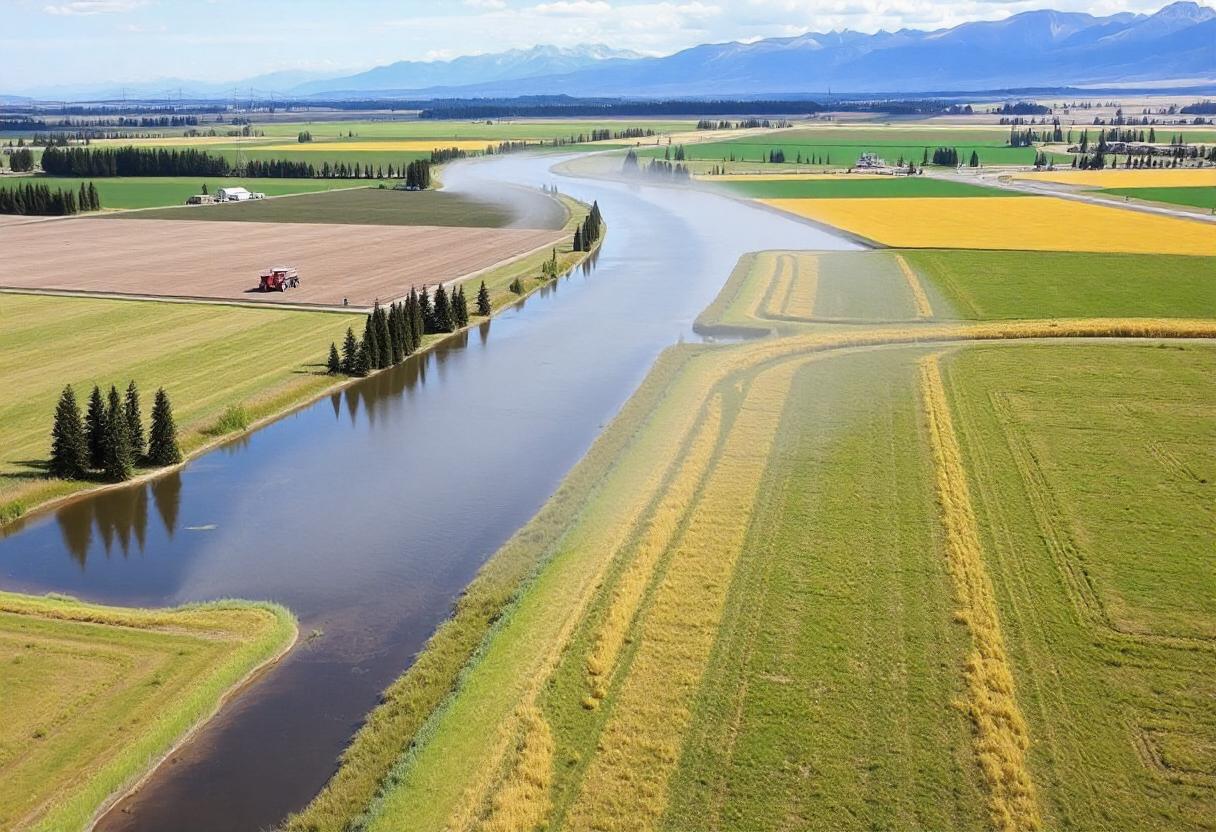
Agriculture is a cornerstone of Alberta’s economy, playing a critical role in both rural and urban areas. The province’s diverse agricultural activities are supported by a well-developed irrigation system, which is essential for optimizing crop production in Alberta’s semi-arid climate.
Agricultural Overview
Alberta is known for its extensive agricultural operations, which include crop farming, livestock raising, and specialty crop production. The province’s main crops include canola, barley, wheat, and oats, while beef cattle farming is a significant component of the livestock sector. Alberta’s vast farmlands and favorable growing conditions make it one of Canada’s leading agricultural regions.
Irrigation System
The irrigation system in Alberta is vital for enhancing agricultural productivity, especially in the southern regions of the province where natural precipitation is insufficient for optimal crop growth. Alberta’s irrigation infrastructure includes an extensive network of canals, reservoirs, and pumping stations that deliver water to farmland.
Irrigation Methods
In Alberta, various irrigation methods are employed to efficiently use water resources. These methods include:
- Surface Irrigation: This traditional method involves flooding fields with water from ditches or channels. It is commonly used for crops such as alfalfa and barley.
- Sprinkler Irrigation: This method uses overhead sprinklers to distribute water across fields, simulating natural rainfall. It is versatile and can be used for a wide range of crops.
- Drip Irrigation: Drip systems deliver water directly to the root zone of plants through a network of tubes and emitters. This method is highly efficient and is often used for high-value crops.
Irrigation Districts
Alberta’s irrigation system is managed through a series of irrigation districts, which are responsible for maintaining infrastructure, managing water distribution, and supporting local farmers. These districts play a crucial role in coordinating water use and ensuring that agricultural lands receive adequate irrigation.
Water Management and Sustainability
Sustainable water management is a key focus in Alberta’s irrigation practices. Efforts are made to conserve water, improve efficiency, and minimize environmental impact. This includes adopting advanced technologies, such as soil moisture sensors and automated irrigation systems, to optimize water use.
Challenges and Future Directions
The agriculture and irrigation sector in Alberta faces several challenges, including climate variability, water scarcity, and the need for infrastructure upgrades. Addressing these challenges requires ongoing innovation, research, and investment in technology to ensure the long-term sustainability of Alberta’s agricultural and irrigation practices.
Efforts are also being made to enhance the resilience of irrigation systems in the face of changing climatic conditions, ensuring that Alberta’s agricultural sector remains robust and productive in the future.